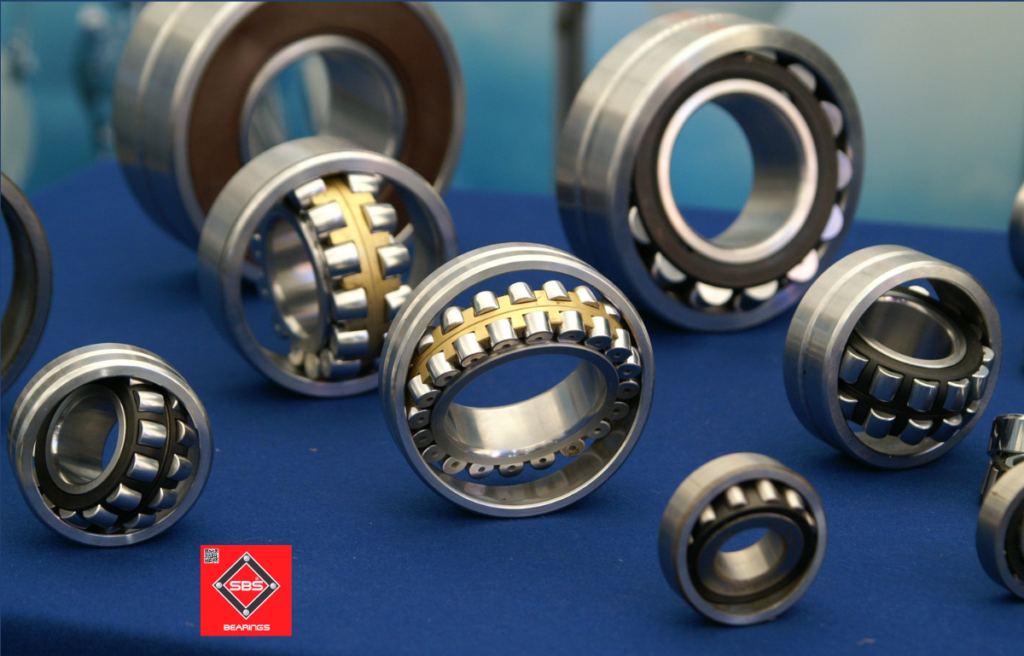Exploring future prospects of Pakistan's Bearing Industry.
Introduction:
Pakistan’s bearings industry has a bright future, boosted by technological advances, economic growth and infrastructure developments. Bearings are a key enabler for various industries as the nation moves forward in its industrialization. This article examines the future prospects for Pakistan’s bearing sector, including emerging trends, opportunities for growth, and challenges.
Technological Innovation and Advancements:

Integration of Industry 4.0:
By embracing the era Industry 4.0 in Pakistan, the bearings industry is poised to undergo a radical shift. It will leverage technologies such as IoT and AI.
Predictive Maintenance, Remote Monitoring, and Data-Driven Analytics will revolutionize the manufacturing process, increasing efficiency and reducing downtime.
Advanced Materials & Designs.
Materials science innovations will allow for the development of high performance bearings that can withstand extreme conditions while delivering superior reliability.
Lightweight materials and advanced coatings will be used to meet the industry’s evolving demands for durability, efficiency and sustainability.
Market expansion and diversification:
Infrastructure Development Initiatives.
The demand for bearings will continue to be driven by mega infrastructure projects such as CPEC in the construction, energy, and transportation sectors.
Investments in roads, ports and energy infrastructure are likely to create a robust bearings market, especially in heavy-duty applications.
Automotive Industry Growth.
The growing automotive industry offers significant opportunities to the bearings sector. This is due to both government incentives and a rising demand from consumers.
Investments into local manufacturing, R&D and quality assurance will help position Pakistan as the hub for automotive bearings, serving both domestic and international markets.
Renewable Energy Sector.
As renewable energy sources such as solar and wind power gain in popularity, demand for bearings that are used in generators and turbines will increase.
Strategic investment in renewable energy technologies and infrastructure will provide new opportunities for the bearings industry. This aligns with global sustainability goals.
Export Potential and Global Competitivity:
International Markets Penetration:
Pakistan’s strategic position and its competitive manufacturing capabilities provide opportunities to expand into global markets.
To establish a solid foothold on export markets, it is important to focus on quality assurance, conformity with international standards and market-specific adaptions.
Value-Added Solutions and Services:
The competitiveness of Pakistani bearing producers will be enhanced by offering value-added service such as customization, aftermarket support and technical assistance.
Establishing partnerships with global OEMs, distributors and retailers will help to increase market penetration and recognition of brands on a global level.
Sustainability and environmental responsibility:
Green Technologies and Practices.
For the bearing industry to remain viable on the long term, it is imperative that they adopt sustainable manufacturing practices.
Investing in energy efficient processes, waste reduction and recycling initiatives not only improves cost efficiency but will also reduce the environmental impact.
Circular Economy Initiatives 4.2.
The circular economy, which involves the reuse, remanufacture, and recycling of products, reduces resource consumption.
Collaborating with stakeholders along the value chain in order to promote circularity, and sustainable consumption patterns, will improve the industry’s reputation and resilience.
Addressing challenges and building resilience:
Talent development and skill enhancement.
Investment in workforce development, technical training and education initiatives will help to address skills gaps and provide a qualified workforce for the future.
Knowledge transfer and skill enhancement will be facilitated by collaboration with academic institutions and associations.
Regulatory compliance and Quality Standards.
For the integrity of products and credibility on the market, it is crucial to adhere to strict regulatory requirements and quality standards.
The reputation of the industry for reliability, performance, and safety will be maintained through continuous monitoring, auditing and certification processes.
Conclusion:
Pakistan’s bearings industry has a bright future, thanks to technological innovations, market expansion and sustainability. The industry can achieve sustainable growth and global competitiveness by embracing Industry 4.0, exploring new markets, and prioritizing the sustainability. Pakistan’s bearings industry can navigate the challenges of tomorrow with strategic foresight, and by taking proactive measures
0 Comments